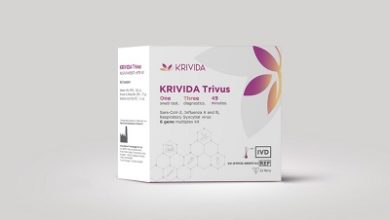KRIVIDA TRIVUS
-
ICMR approves KRIVIDA TRIVUS developed by Kriya Medical Technologies
The kit can detect Influenza, SARS CoV2, and Respiratory Syncytial Virus KRIVIDA TRIVUS developed by Chennai-based KRIYA Medical Technologies has…
Read More »

